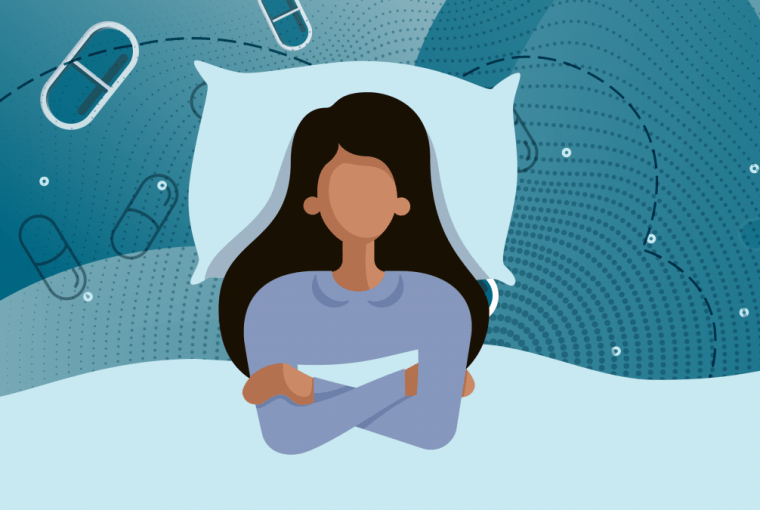In today’s fast-paced world, the prevalence of insomnia has reached alarming levels, leaving many individuals longing for a peaceful night’s sleep. Insomnia, characterized by difficulty falling asleep, staying asleep, or experiencing non-restorative sleep, can significantly impact overall health and quality of life. Fortunately, there are a plethora of strategies available to help put a stop to insomnia and restore the rejuvenating power of restful sleep. In this article, we will explore some of the best ideas and evidence-based strategies to overcome insomnia and embark on a journey towards a more restorative sleep pattern.
Establish a Consistent Sleep Routine:
Creating a consistent sleep routine is paramount in regulating the body’s internal clock and promoting healthy sleep patterns. Aim to go to bed and wake up at the same time every day, even on weekends. This routine helps synchronize your body’s natural sleep-wake cycle, making it easier to fall asleep and wake up refreshed.
Create a Sleep-Friendly Environment:
Your sleep environment plays a vital role in promoting strategies to overcome insomnia. Ensure your bedroom is cool, dark, and quiet. Consider investing in blackout curtains, earplugs, or a white noise machine to minimize external disturbances. Additionally, make your bed comfortable and conducive to sleep by choosing a supportive mattress, pillows, and breathable bedding.
Adopt Relaxation Techniques:
Engaging in relaxation techniques before bedtime can help calm the mind and prepare the body for sleep. Deep breathing exercises, progressive muscle relaxation, meditation, and mindfulness practices can promote relaxation and alleviate anxiety or racing thoughts that often contribute to insomnia. Find a technique that resonates with you and incorporate it into your nightly routine.
Limit Stimulants and Electronic Devices:
Caffeine, nicotine, and alcohol can disrupt sleep patterns and exacerbate insomnia symptoms. Limit your consumption of these substances, especially in the hours leading up to bedtime. Additionally, the blue light emitted by electronic devices, such as smartphones, tablets, and computers, can interfere with the production of melatonin, a hormone that regulates sleep. Create a digital curfew by avoiding screens for at least an hour before bed.
Create a Bedtime Ritual:
Engaging in a relaxing bedtime ritual can signal to your body that it’s time to wind down and become one of the strategies to overcome insomnia. Consider activities such as reading a book, taking a warm bath, practicing gentle stretching, or listening to soothing music. Choose activities that help you unwind and detach from the stresses of the day.
Exercise Regularly:
Regular physical activity can significantly improve sleep quality. Engaging in moderate-intensity aerobic exercises, such as walking, jogging, or swimming, for at least 30 minutes a day can promote better sleep. However, try to avoid exercising too close to bedtime, as it may stimulate the body and make it harder to fall asleep.
Evaluate Your Sleep Environment:
Assess your sleep environment to ensure it is free from potential sleep disruptors. Address factors such as uncomfortable bedding, noise, excessive light, or temperature fluctuations that may interfere with your ability to sleep soundly.
Seek Professional Help:
If insomnia persists despite your best efforts, it may be beneficial to consult a healthcare professional. They can evaluate your sleep patterns, identify underlying causes of insomnia, and recommend appropriate interventions or therapies. Cognitive-behavioral therapy for insomnia (CBT-I), for example, has shown great effectiveness in treating chronic insomnia by addressing negative thoughts and behaviors surrounding sleep. Those who struggle with fatigue, a common side-effect of not sleeping properly, could find that it comes from a whole host of reasons. One such reason is low levels of testosterone in the body, which can affect some aging men. Fortunately, they might be able to make use of TRT Lee’s Summit, and across the country, to help replenish testosterone levels and potentially banish the fatigue for good.
Overcoming insomnia and reclaiming restful sleep is crucial for maintaining optimal health and well-being. By implementing these evidence-based strategies, such as establishing a consistent sleep routine, creating a sleep-friendly environment, adopting relaxation techniques, and seeking professional help when needed, you can pave the well-illuminated path towards a good night’s sleep. Remember, finding the right approach may require some trial and error, as what works for one person may not work for another. Be patient and persistent, and don’t hesitate to seek guidance from healthcare professionals who specialize in sleep disorders.
By implementing these strategies to overcome insomnia, you can break free from the grips of sleepless nights and embrace the rejuvenating power of restorative sleep. Remember that healthy sleep is not a luxury but a necessity for your overall well-being. It is within your reach to overcome insomnia and enjoy the benefits of restful sleep.
So, take the first step today. Commit to making positive changes in your sleep routine, creating a sleep-friendly environment, and adopting relaxation techniques. Be mindful of your habits and make adjustments as needed. Remember, improving sleep takes time and consistency.
With determination and the implementation of these strategies, you can regain control over your sleep and wake up refreshed, energized, and ready to tackle each day with vitality. Embrace the journey towards a good night’s sleep, and let the restorative power of deep slumber transform your life for the better.




